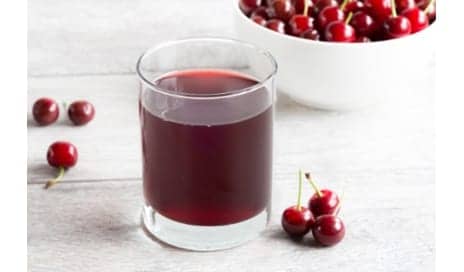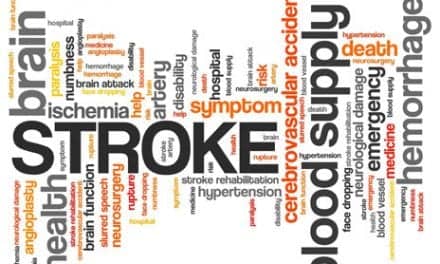Montmorency tart cherry juice concentrate may help aid recovery for athletes following a game or an intense practice, according to a recent study involving semi-professional male soccer players.
The double-blind, placebo-controlled study simulated the physical and metabolic demands of a soccer game to identify the juice’s effects on recovery following prolonged, intermittent exercise.
“Previous research on Montmorency tart cherry juice has examined recovery following muscle-damaging protocols such as heavy weight training, long-distance running, or cycling, but there are no studies that have used sport-specific activity to cause the exercise stress,” says Glyn Howatson from UK-based Northumbria University, who led the study, according to a release from The Cherry Marketing Institute.
In the study, published recently in Nutrients, 16 semi-professional male soccer players ages 21 to 29 were randomly assigned to consume either Montmorency tart cherry juice or a placebo.
The juice group consumed about 1 ounce (30 mL) of Montmorency tart cherry juice concentrate mixed with 100 mL of water twice per day (8 am and 6 pm) for 7 consecutive days—for 4 days prior to the simulated trial and for 3 days afterward. The 30-mL dosage of Montmorency tart cherry juice concentrate contained 73.5 mg of anthocyanin, or the equivalent of about 90 whole Montmorency tart cherries.
The placebo group consumed a calorie-matched fruit drink with less than 5% fruit mixed with water and maltodextrin, on the same schedule.
All the participants were instructed to consume a diet low in polyphenols for 48 hours prior to, and throughout the 7-day consumption period. The also were instructed to keep food diaries so that the researchers could assess their compliance, according to the release.
The researchers suggest that the participants who consumed Montmorency tart cherry juice performed better on performance measures such as maximal voluntary isometric contraction, countermovement jump height, 20 m sprint time, knee extensors, and 5-0-5 agility than the placebo group.
In addition, they suggest that the participants who consumed Montmorency tart cherry juice showed significantly lower levels of Interleukin-6—a marker for inflammation—particularly immediately post-trial, as well as lower muscle soreness ratings across the 72-hour post-trial period.
The scientists observed no significant effects in muscle damage or oxidative stress among either group.
The results from this study suggest to researchers that Montmorency tart cherry juice may help aid athletes involved in prolonged, repeat sprint activity, such as soccer, rugby, and lacrosse, the release concludes.
[Source(s): The Cherry Marketing Institute, PR Newswire]





